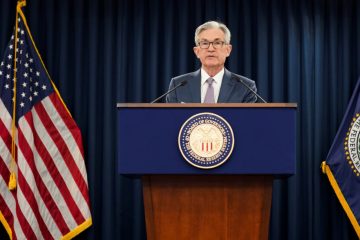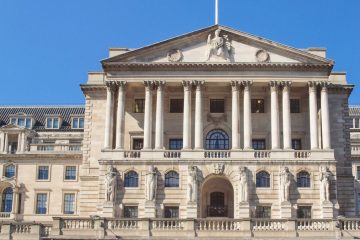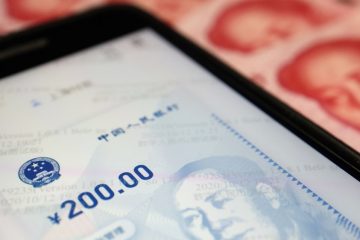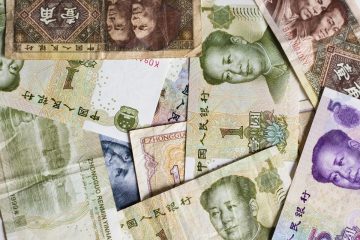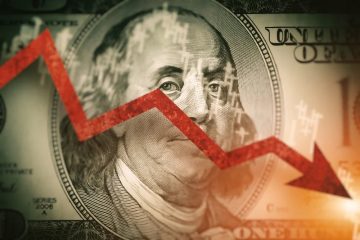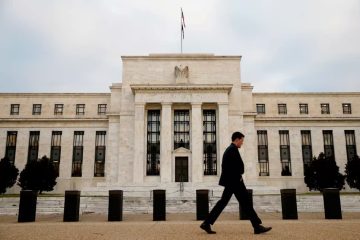U.S. Rate Rises Hit the Yen Hard, but Now It’s Staging a Comeback
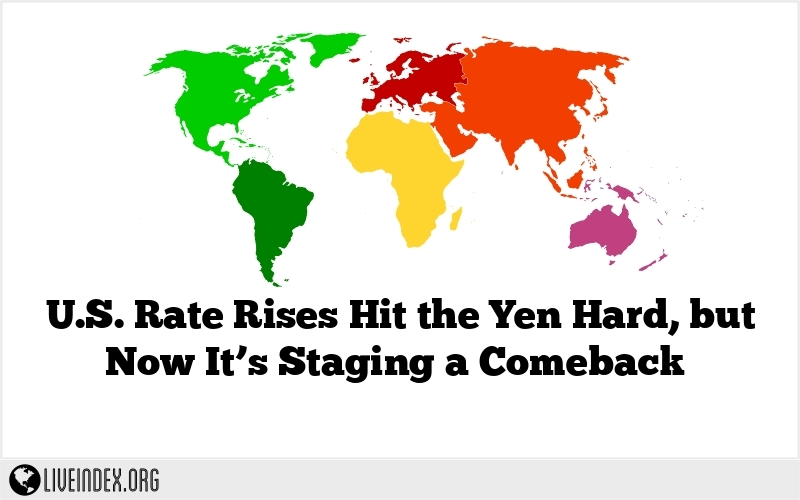
Japan’s currency has surged against the dollar this month. Central bank moves look set to boost it further. The yen has been one of the worst-performing major currencies in the world for much of this year, falling nearly 5% against the U.S. dollar and dropping even more against the euro, the British pound and the Swiss franc. But it has sharply reversed course in the past two weeks and has gained over 4% against the dollar since the start of July.
The shift is largely attributable to one of the most critical questions currency traders ask themselves every day: Where are interest rates heading? The Bank of Japan’s yearslong commitment to ultraloose monetary policy has put it in contrast with the Federal Reserve, which has embarked on a historic spree of rate increases over the past 16 months. But traders think both central banks could soon change direction.
One dollar bought around 138.6 yen on July 19, after trading close to 145 yen per dollar less than two weeks ago, according to FactSet data. A FactSet survey that polled 43 brokerages showed that the median estimate is for the yen to reach 132 by the end of this year. Strategists from Citigroup and Nomura think a dollar will buy around 120 yen next year.
A major change in the value of the yen would have a far-reaching impact, hitting profits at some of Japan’s biggest companies, reducing the attractiveness of Japanese stocks to foreign investors and shifting how traders and investors view a huge range of asset classes. The yen is the third-most-traded currency in the world—after the dollar and euro—giving it a critical role in the global financial system.
A weak yen helps Japan’s biggest exporters, including automakers such as Toyota Motor and Honda Motor, since it makes their overseas revenues worth more when they convert them back to yen. The low value of the currency has also helped attract foreign investors to the stock market this year by giving them a chance to profit from both a rise in stock prices and the strengthening of the currency.
Japan’s benchmark Nikkei 225 index has jumped around 26% this year and is now trading around its highest levels in more than three decades. But the index started to lose ground this month, a fall that accompanied the yen’s rise. Hedge funds have made big bets against the currency this year, selling yen and buying currencies including British pounds, Mexican pesos and Brazilian real, analysts said. But many hedge funds have now unwound their short positions and are long yen through options contracts, said Wei Li, a multiasset portfolio manager at BNP Paribas Asset Management.
Some investors are also using derivatives to bet on volatility in the yen and the Japanese stock market, he said. The rapid change in the value of the yen against the dollar is part of a wider trend of dollar weakening. U.S. consumer-price inflation cooled last month, strengthening the belief that the Fed will bring an end to rate rises after its meeting next week, when most economists expect at least one final rate increase.
The dollar’s loss of value against the yen has been more pronounced than other currencies this month. This is partly because the yen lost so much ground against the dollar during the Fed’s rising cycle, but it is also because traders increasingly expect the Bank of Japan to do its part to bridge the interest rate gap between the two countries.
Kazuo Ueda took over as Bank of Japan governor in April and has so far made no major policy moves. But many economists and analysts think he will increase or entirely remove a yield cap on some government bonds, although there is debate about the timing of such a move. “The policy convergence between the United States and Japan might proceed much quicker than was initially thought,” said Tetsufumi Yamakawa, chief Japan economist at Barclays.
According to a monthly survey conducted by data provider Quick, almost three-quarters of market participants expect the central bank to keep policy unchanged at its meeting next week. But if it does change policy, 45% expect the Bank of Japan to scrap yield-curve control entirely. Japan’s central bank is able to consider small forms of monetary tightening because the economy is finally returning to health. Japan’s economy grew at an annualized 2.7% in the first quarter, outpacing the U.S. The country is also finally showing signs of inflation after decades of near-zero price growth. Central banks raise interest rates to tame inflation.
Homin Lee, senior macro strategist at Lombard Odier, said the weak yen was inconsistent with Japan’s economic fundamentals. Lombard Odier has a bullish outlook for the yen, which the firm says could strengthen to 120 yen per dollar in the next 12 months. Not everyone thinks the yen is going to keep getting stronger against the dollar. “I do understand why the market is trading this way and could see the dollar yen falling further to 135 in the near term, but it does seem overdone,” said Shusuke Yamada, chief Japan FX and rates strategist at BofA Global Research. He said any changes to the Bank of Japan’s yield-curve control would be gradual and ultimately the huge difference in rates between Japan and the U.S. would remain the most important factor. “The carry trade will prevail in the end,” he said.
Market participants tend to get suspicious before every Bank of Japan meeting, said Naomi Muguruma, a strategist at Mitsubishi UFJ Morgan Stanley Securities. The central bank can only tweak yield-curve control by surprise, because if it gave any hint in advance the market would move immediately, according to people familiar with the Bank of Japan’s thinking. Muguruma expects the Bank of Japan to change policy by scrapping yield-curve control, but she thinks it will wait until the fourth quarter.


